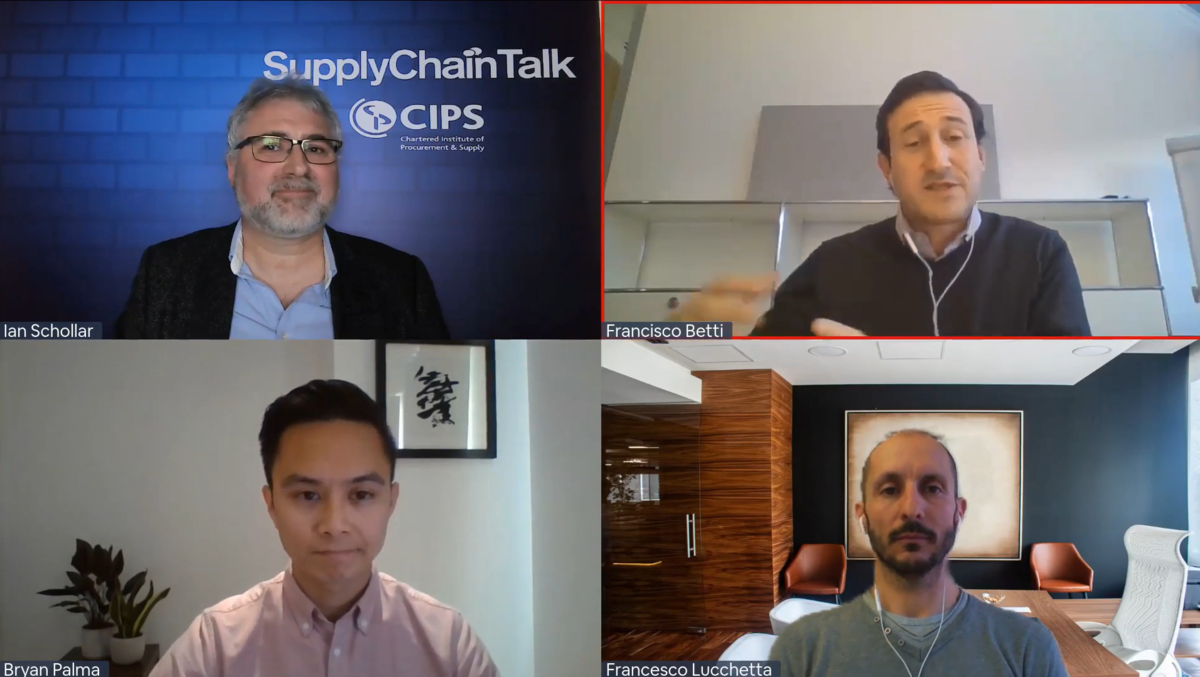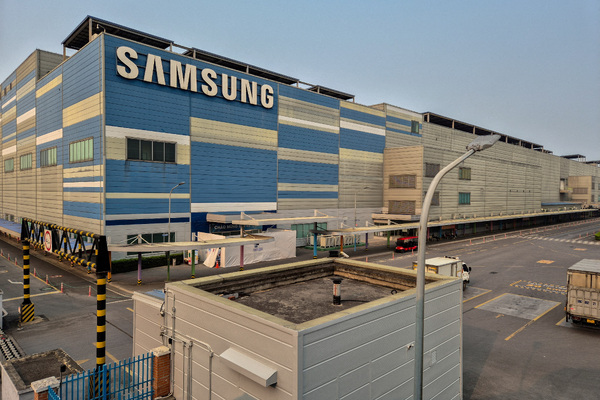SupplyChainTalk: How digital transformation is strengthening the links in the supply chain

On 9 March Supply Chain Talk host Ian Schollar was joined by Francisco Betti, Head of Advanced Manufacturing and Production, World Economic Forum as lead guest; Francesco Lucchetta, Procurement & Supply Chain Leader, EMBA - Growth, Excellence, Risk Management, Digitalizatio; and Bryan Palma, Director, Product Marketing at Kinaxis.
Views on news
A campaign, under the slogan Procure4Peace, has been set up by procurement professionals across the world to rally support for Ukraine with practitioners and educators in the war-torn country also involved to coordinate help.
A LinkedIn page and a website have been set up by technology firm ProcureTech and analytics company Sievo to link the needs of organisations in Ukraine with the help procurement professionals outside the country can provide. The latest supply chain crisis brought about by the war will require a lot of strategic agility from companies both from a technological and a skillset perspective.
However, solutions are now available that enable supply chain professionals to learn about supply chain issues and act on the information faster and more efficiently.
The fact that supply chains have become more resilient in the wake of the pandemic as a result of technology upgrades and upskilling means that now we have the tools to identify where shortages are and redirect inventories from places where there are excesses. Its great now to see competing companies come together to ease the negative impact of the crisis. Digital transformation has also showed us that growth doesn’t have to come at the expense of the environment or society, and business operations can be made more sustainable through digital technology.
How can digital transformation help suppliers grapple with black swan events?
The pandemic had been the first time that disruption came from both the demand and the supply side. As a result of these turbulent times, resilience has become a competitive advantage. Global companies have strengthened their local ecosystems to respond faster to disruptions.
Paradoxically, the pandemic and now the war have turned use cases for digital transformation that didn’t sound convincing enough prior to Covid more compelling. The number one issue to address in the first year of the pandemic was, generally speaking, material shortages. In the second year, it was business continuity.
Documentation and regulation can become hurdles during times of crises, which good digital connections across a supply chain can ease. Closed blockchains show great potential in addressing these problems, although currently we don’t have an end-to-end solution and there is still a lot to do about standardising available offerings – but that’ll soon improve as the technology matures. Rather than relying on historic data, we’ll use more diverse data sources such as sentiment data from social media and weather patterns to be able to better predict future trends and events.
There may be different takes on whether climate change should get integrated into corporate strategy, or rather, become its key driver. Digitalisation is already bringing tangible results in the optimisation of energy and water consumption, as well as managing post-consumer packaging though tracking products in the supply chain. The incremental digital mapping of supply chains will eventually lead to better transparency and higher efficiency. The pandemic has also witnessed the emergence of a supply network planning tool, which will tell you how your “node” – for example some shortage in your production facility in Ireland – will affect the entirety of your supply chain network.
Food for further thoughts
Black Swan events expose the holes in your bucket. Plugging those holes takes a lot of effort and energy and doesn’t leave time for planning and risk mitigation.
Digital transfor
mation enables companies to drive the productivity and the sustainability agenda at the same time.
Standardisation shouldn’t be an afterthought. Rather, it should be continuous and engrained in the corporate culture.
The most important skill that supply chains and digitally advanced companies will be in the need of is the propensity to learn.
In solving about 90 per cent of the problems that the 2020-21 presented, supply chain professionals relied on their previous relationships and partnerships.
Digitalisation is a change management process designed for deploying digital tools. Therefore, process comes first and tools second.
Watch it on-demand here.

Business Reporter Team
Related Articles
Most Viewed
Winston House, 3rd Floor, Units 306-309, 2-4 Dollis Park, London, N3 1HF
23-29 Hendon Lane, London, N3 1RT
020 8349 4363
© 2025, Lyonsdown Limited. Business Reporter® is a registered trademark of Lyonsdown Ltd. VAT registration number: 830519543





